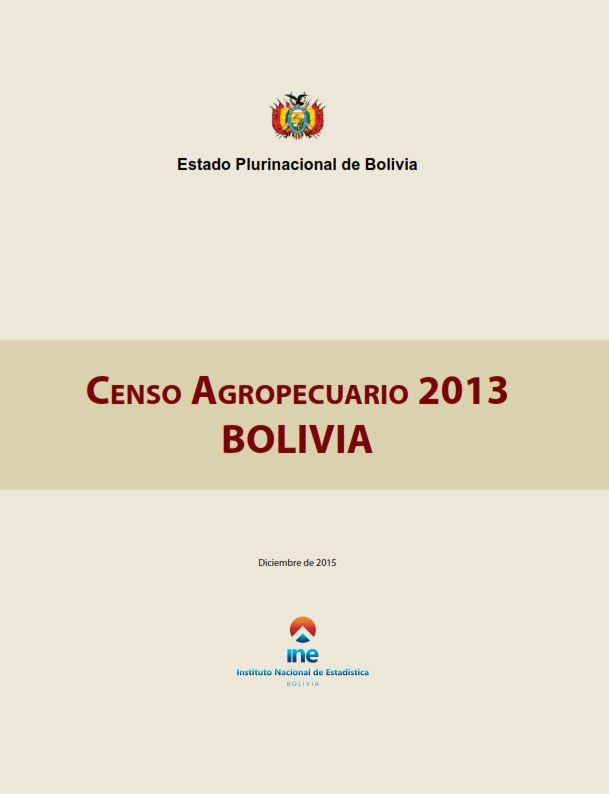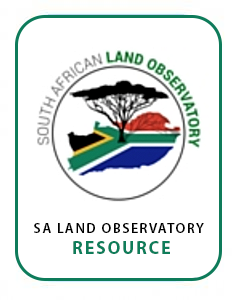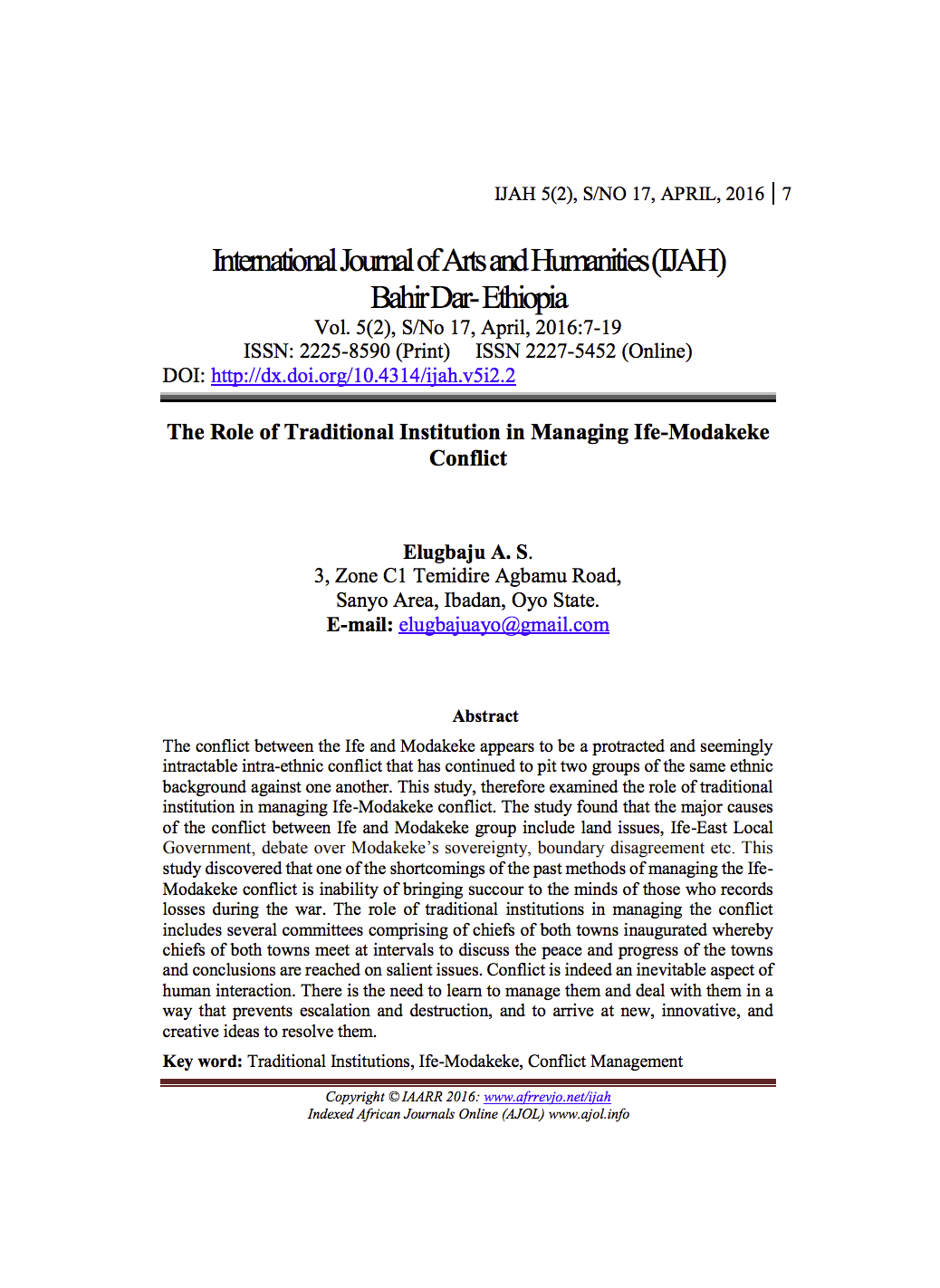Location
PO Box 420
Grahamstown
6140
South Africa
African Journals OnLine (AJOL) is the world's largest and pre-eminent collection of peer-reviewed, African-published scholarly journals.
Historically, scholarly information has flowed from North to South and from West to East. It has also been difficult for African researchers to access the work of other African academics. In partnership with hundreds of journals from all over the continent, AJOL works to change this, so that African-origin research output is available to Africans and to the rest of the world.
AJOL is a Non-Profit Organisation based in South Africa.
Members:
Resources
Displaying 1 - 5 of 5Censo Agropecuario 2013 - Bolivia
El Instituto Nacional de Estadística (INE) es el órgano ejecutivo del Sistema Nacional de Información Estadística (SNIE) que tiene las funciones de relevar, clasificar, codificar, compilar y difundir, con carácter oficial, la información estadística de Bolivia.
Effects of land use change on streamflow and stream water quality of a coastal catchment
This study aimed to link land cover/use change to water quality in an important water supply coastal catchment. The approach followed a spatial and temporal analysis of historical catchment land use change to assess how changes influenced water quality and river flow in the Touws and Duiwe Rivers, southwestern Cape, South Africa. Each sub-catchment has unique characteristics which influence land use and water quality and the purpose was to analyse each one separately.
The role of traditional institution in managing Ife-Modakeke conflict
The conflict between the Ife and Modakeke appears to be a protracted and seemingly intractable intra-ethnic conflict that has continued to pit two groups of the same ethnic background against one another. This study, therefore examined the role of traditional institution in managing Ife-Modakeke conflict. The study found that the major causes of the conflict between Ife and Modakeke group include land issues, Ife-East Local Government, debate over Modakeke’s sovereignty, boundary disagreement etc.
Environmental Degradation in Oil Producing Areas of Niger Delta Region, Nigeria: the Need for Sustainable Development
Due to oil exploration and other human activities in the Niger Delta region, there is evidence of environmental degradation all over the area (Oronto, 1998). Environmental degradation is occasioned by consistent flow of industrial waste, oil spills, gas flares, fire disaster, acid rain, flooding erosion, etc., which has led to the pollution of farmlands and fishponds. It has also led to the destruction of properties and human lives, including aquatic and bio-diversity.
Environmental Degradation in Oil Producing Areas of Niger Delta Region, Nigeria: the Need for Sustainable Development
Due to oil exploration and other human activities in the Niger Delta region, there is evidence of environmental degradation all over the area (Oronto, 1998). Environmental degradation is occasioned by consistent flow of industrial waste, oil spills, gas flares, fire disaster, acid rain, flooding erosion, etc., which has led to the pollution of farmlands and fishponds. It has also led to the destruction of properties and human lives, including aquatic and bio-diversity.




